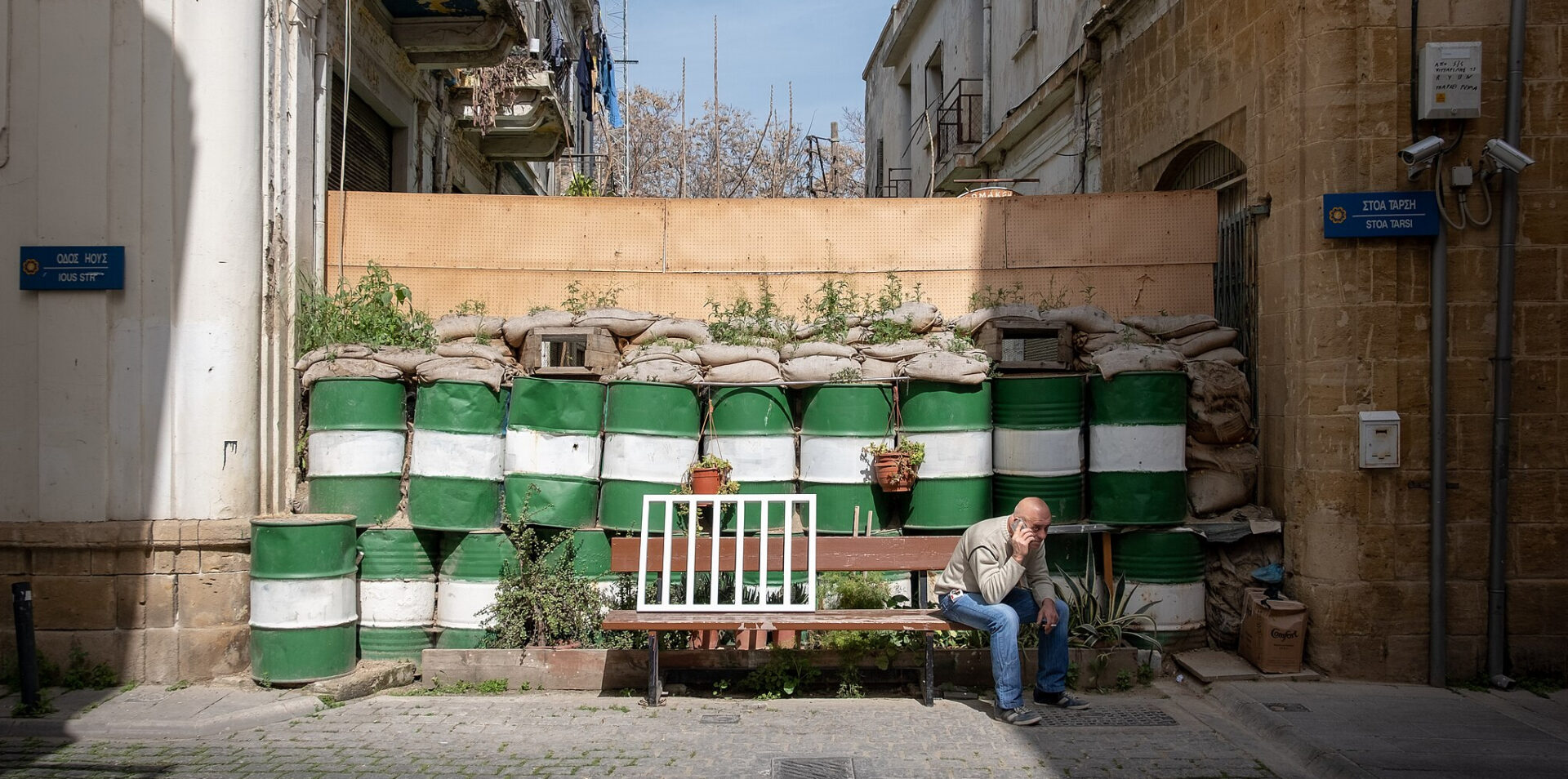In the early hours of Jan. 5, an explosion erupted outside a building in Nicosia, the capital of Cyprus. The explosive device caused no injuries in the quiet hours of the morning but left significant damage to the offices of KISA (Action for Equality, Support, Antiracism), a local nonprofit that works with asylum seekers and refugees on the island.
Many believe the explosion targeted KISA, and the blast destroyed important hardware, such as photocopiers and computers. But the explosion has also raised concerns about what it means for the space for civic society in Cyprus as well as worries about an escalation in “racist rhetoric and racist violence,” according to Amnesty International. Amnesty also said the explosion was “the result of a long campaign to discredit and silence independent voices in Cyprus.”
Authorities are still investigating the explosion, the latest in a series of incidents targeting immigrant communities as well as those who work with them. In January 2022, there were reported attacks against people, primarily Syrians, living in an apartment block in the town of Chloraka. In late August 2023, an anti-migrant protest in the same town drew the participation of local political representatives. Later that day, far-right assailants attacked refugees and migrants. On Sept. 1, 2023, demonstrators in Limassol chanted racist slogans, hurled Molotov cocktails, vandalized migrant-owned stores, and attacked Asian delivery drivers.
In the wake of the 2023 violence, Kyriacos Kouros, a senior Cypriot diplomat, posted on X that an ambassador of an unspecified Arab country had reached out to him. Several of the ambassador’s compatriots on holiday in Cyprus had been “victims” of the violence and had returned home as a result. “This is not the Cyprus where I was born, grew up, had a family,” he said, adding that “we should not have allowed it to develop into something so hideous.”
Frontline Country for Refugees
Due to the island’s proximity to Syria, Lebanon, and Turkey, Cyprus is one of the frontline Mediterranean countries for asylum seekers arriving in the European Union. Activists and NGO workers have highlighted an increasingly hardline stance taken towards asylum seekers, many of whom arriving are now Syrians taking fishing boats from Lebanon.
In August 2023, the United Nations High Commissioner for Refugees said it was “extremely concerned” about the return of more than 100 Syrian nationals to Lebanon. The agency said the returns had happened “without legal procedural safeguards for persons who may be in need of international protection,” breaching international and European law. The Cypriot government has said that such returns are carried out lawfully and in line with a bilateral agreement made with Lebanon.
This is not the Cyprus where I was born, grew up, had a family.
– Kyriakos Kouros
While Cypriot politicians complain of a supposedly “record” number of arrivals, official data shows that asylum applications were down in 2023 — 10,589 came that year, compared with 21,565 in 2022. In February, Cypriot President Nikos Christodoulides went as far as to call for safe zones to be established in Syria, “I don’t consider not discussing the situation inside Syria as an appropriate option for the European Union,” he said.
Although an EU Commission spokesperson declined to “comment” on the Cypriot President’s remarks, they said that “any return of refugees to Syria needs to be safe, voluntary and dignified, in line with UNHCR parameters and thresholds.”
The spokesperson added that “the EU supports the Syrian refugees and their aspiration to live safely at home. For them to be able to return to their country, the necessary conditions need to be in place.” They also noted that currently “there is no EU list of safe third countries.”
“Increasingly Hostile”
Corina Drousiotou, a senior legal advisor at the Cyprus Refugee Council, said that the environment in Cyprus had become “increasingly hostile” for migrants and refugees in recent years. The hostility, she said, was “to a great extent linked to the negative political rhetoric on the issue and the overall approach taken to address these issues.” She added, “As a result, we have witnessed the attacks that took place last year, as well as an increase in incidents of harassment and mistreatment, and increasing intolerance.”
In February, Amnesty International was amongst 41 organizations that signed a letter calling on Cypriot authorities to take action to stop the escalating harassment and attacks against KISA and to protect civic spaces in Cyprus.
Despite the “seriousness” of the bombing, the organizations expressed worry that Cypriot authorities hadn’t yet issued a formal response. “The lack of official and public communication regarding the assault and the investigation, and support for KISA and civil society organizations in general, indicates a worrying disregard by the authorities.”
The groups cited “deep concern” about “the reported failure of the authorities and police to take any steps to protect KISA as well as the inadequate response to the numerous threats, and actual acts of physical and verbal violence, harassment, and smear campaigns formally reported to the police.”
Far-Right Links
Nicoletta Charalambidou, a member of KISA’s steering committee, explained that the attack had had a “huge negative impact on our work and it is obviously linked to the far right and anti-immigrant narrative that was built during particularly the last decade in the country.”
Meanwhile, Charalambidou added, the nonprofit sees “this as a continuation of hostility against migrants and asylum seekers, those who do not have the means to defend themselves and access basic human rights. Hence the attack on people who attempt at giving a helping hand.”
Despite the attacks KISA has endured over the years, Charalambidou said, “We were going through a process of reorganizing ourselves to be able to continue and further develop our work.”
A spokesperson for the EU Commission told Inkstick that Home Affairs Commissioner Ylva Johansson had condemned the attack against KISA and that the issue was also raised in the meeting with the Cypriot Interior Minister. “The Cypriot authorities informed that the Nicosia Crime Investigations Department is investigating the case,” the spokesperson said. “Moreover, during her visit to Cyprus, Commissioner Johansson had a dedicated meeting with stakeholders and NGOs, including KISA. The aim was to exchange on the ongoing developments in migration management and civil society’s role in this.”
For her part, Charalambidou insisted that the violence would not deter KISA. In fact, the explosion reinvigorates “our efforts,” she said. “It’s like a boat in the middle of the sea and when you start seeing the shore and hope is increased, events such as these throw you back in the middle of the ocean, but we will never stop swimming.”




















